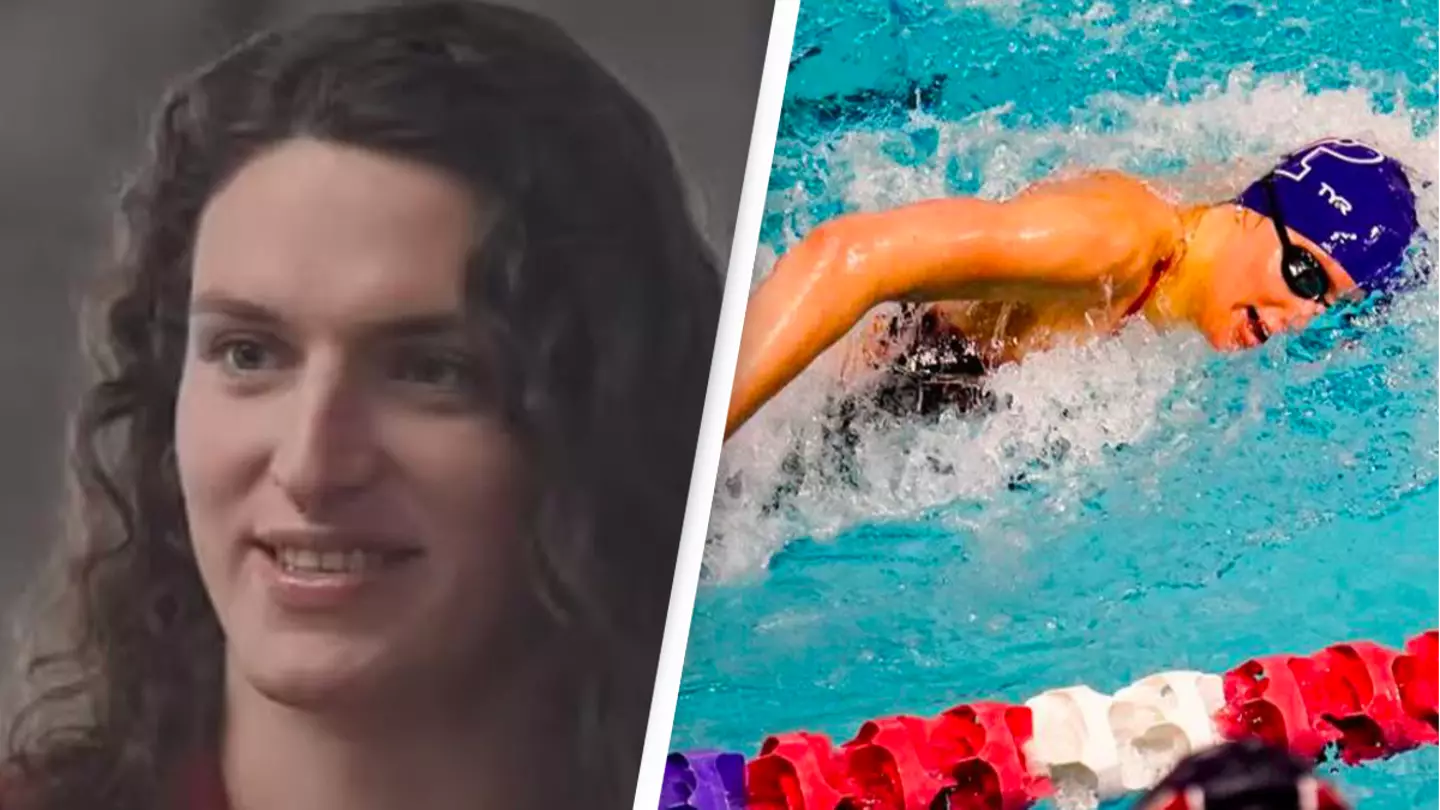
Transgender swimmer Lia Thomas has broken her silence on the impact her transition had on her performance.
Thomas became the first transgender athlete to win a NCAA title in any sport when she won gold in the 500-yard freestyle at the National Collegiate Athletic Association (NCAA) championships in March.
Her success in the pool has been followed by scrutiny from critics who claim she transitioned to have a better chance at winning medals.
Thomas has now hit back, explaining that people 'don't transition for athletics' and instead do it 'to be happy and authentic and our true selves'.
Advert
In an interview with Good Morning America, she also explained that during her transition she lost muscle mass, which she says made her 'a lot weaker and a lot, a lot slower in the water'.
The University of Pennsylvania swimmer also spoke of her success and her place in sport as a transgender athlete, reiterating her dream to compete in the Olympics.
She also broke her silence on the attacks over her success in swimming, responding to claims that she had an unfair advantage over other competitors.
She said: "I don’t need anybody’s permission to be myself.
"You can’t go halfway and be like, 'I support trans people but only to a certain point'.
"If you support transwomen and they’ve met all the NCAA requirements, I don’t know if you can say something like that. Trans women are not a threat to women’s sport."
The swimmer has faced opposition from those who argue transgender athletes have an advantage over others.
Per ABC, a Sports Medicine journal review on several studies into the potential advantages trans athletes may have has concluded that there is 'no direct or consistent research' showing transgender athletes have an advantage over cisgender ones.
However, more than a dozen US states have instituted bans to prevent transgender students from competing in sports according to their gender identity.
Thomas has asked her critics whether cisgender women who are competing should also be disqualified if they 'are tall, muscular and have more testosterone'.
She also confirmed she plans to continue swimming and aims to compete at the 2024 Olympics.
Beyond that, Thomas says her plans involve going to law school, and she says her proudest moment yet was hearing her name be called as Lia Thomas at her college graduation.
If you have a story you want to tell, send it to UNILAD via [email protected]
Topics: Sport